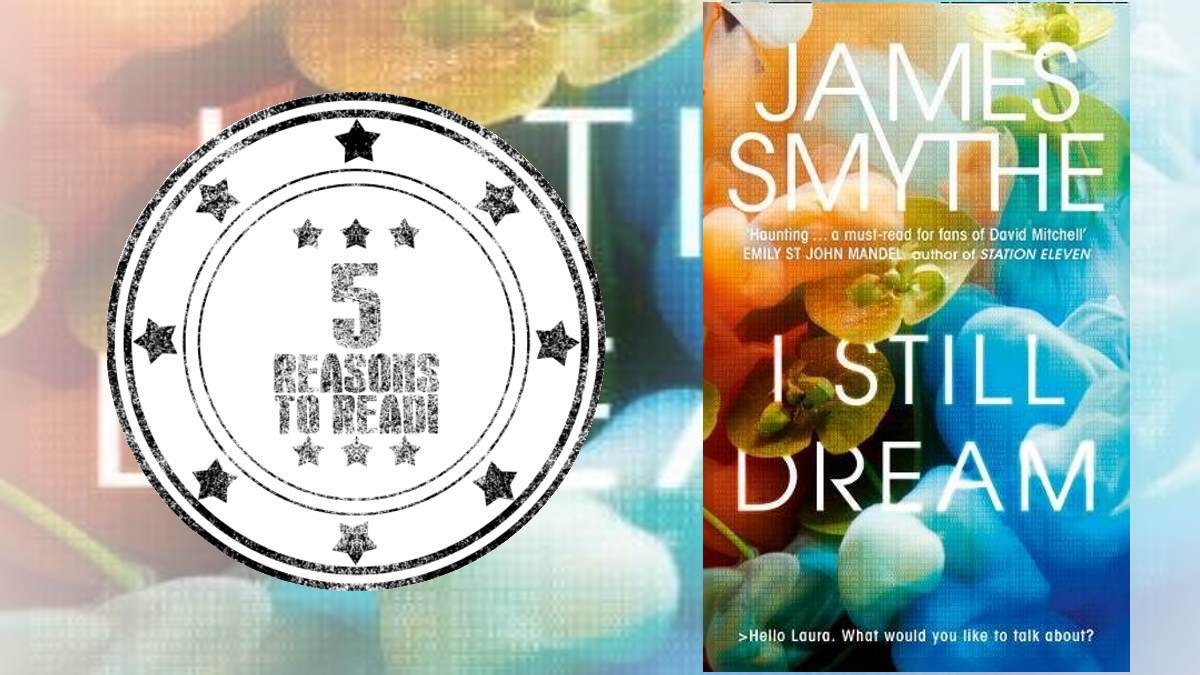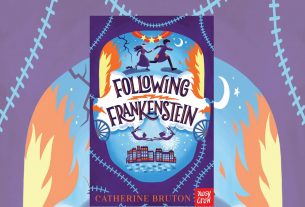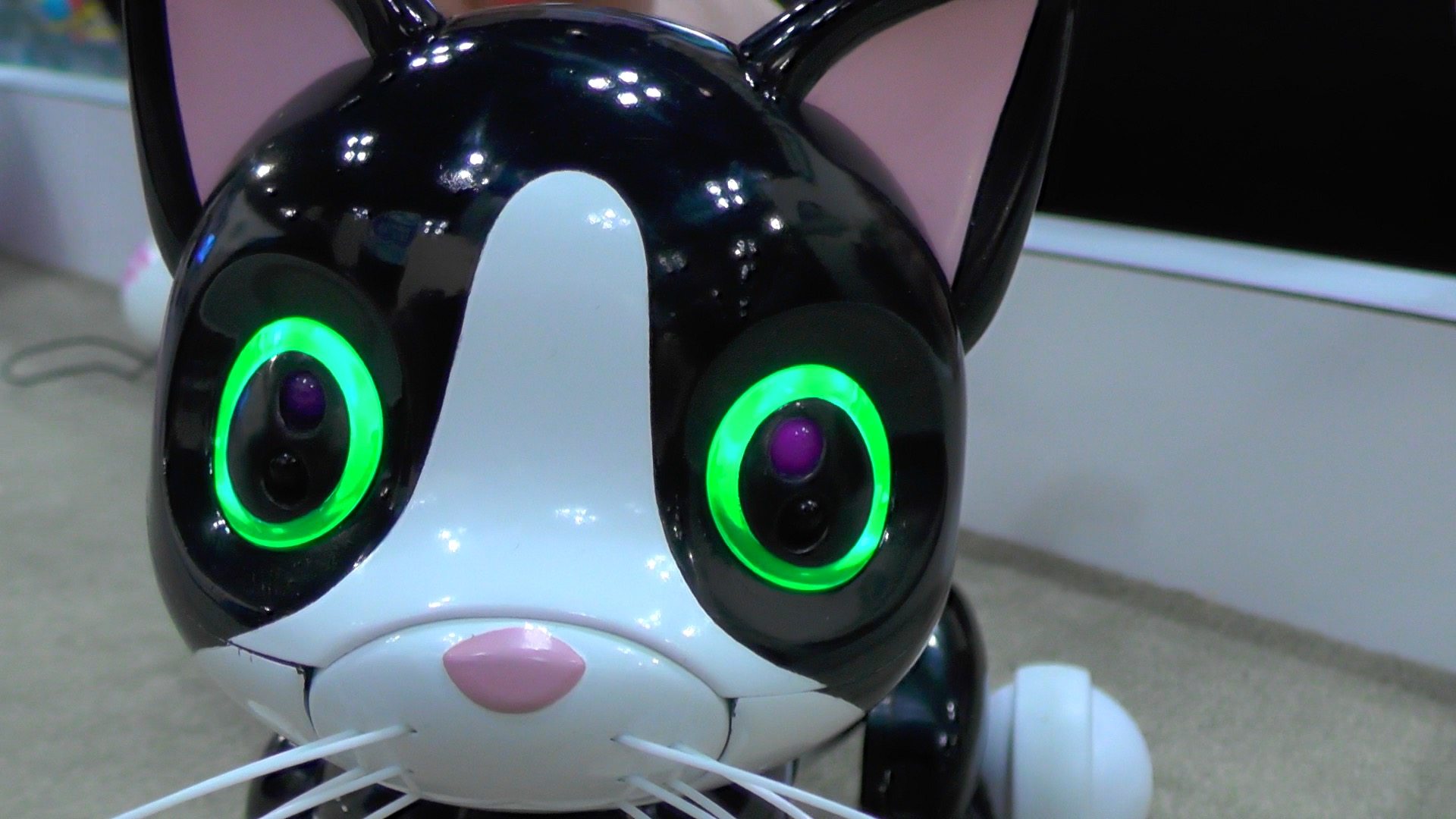James Smythe is one of my favorite authors. I Still Dream is the first adult novel he’s written since I wrote this piece for GeekDad, and, as ever when reading a favorite author, I opened the pages of the book with the nagging doubt of “What if it isn’t as good?”
I needn’t have worried. I Still Dream is speculative fiction of the highest order. Smythe has a way of cutting to the bone with his observations and extrapolations. His books do not paint a happy view of society and human nature, often making for uncomfortable reading.
Smythe has carved his niche by examining the effects of social media and technology on society. His novels usually take a technology on the cusp of realizing its potential and imagining what might happen to the world if it went wrong. His novels are Black Mirror in literary form. Running alongside this, usually, is the theme of memory and the persistence of consciousness. His books are often bleak, but never dull, and I find them all utterly compelling. I Still Dream ranks alongside The Machine as one of my favorite Smythe books.
Here are my five reasons to read it.
1: The Structure
Each section of the book takes place ten years after the previous one. This gives us a snapshot of characters lives, and the wider world, with a decade between each. The book opens in 1997 and with the exception of one flashback moves forwards in 10-year increments, through 2017 and into the future. In 1997, main character Laura is a teenager, and we see her grow up over the course of the novel. By using these 10-year increments, Smythe shows how much things change, but also how things stay the same.
Smythe uses his device to demonstrate how we are products of our existence. How our hopes and fears, actions, and reactions are all informed by our experiences, with none being more influential than those we have as children. The novel’s structure also allows Smythe to show how our use technology has changed over time. As the novel progresses, this backdrop provides a framework onto which Smythe hangs his extrapolations for the evolution of the technology as he looks to the future.
2: Nostalgia
Nostalgia is very important in all of Smythe’s novels, none more so than in I Still Dream. The pop-cultural references are seeped into the fabric of his stories. They’re not just plot devices, where references are chucked at you in a “Remember X? Remember Y?” manner, often without artifice (Ready Player One, I’m looking at you). Instead, Smythe crystallizes the importance of music, film, and books to our personalities and the way in which we interact with the world. In Smythe’s world, nostalgia is not something used to elicit a connection with his reader, it is something integral to the psyche of his characters.
When Smythe talks about 1997, he doesn’t just remind you of the great bands and films of the time. He captures what life was like, particularly from a technological standpoint. Life before fast internet connections and ubiquitous mobile phones is expertly captured and portrayed.
3: The Music
Much of the novel’s nostalgia comes from its references to music. They permeate the book, acting like a nostalgic glue that binds the novel together. The references are never too overt but they’re always there. Laura is a Kate Bush fan, thanks to her time with her now absent father. Her own music taste then extends to Radiohead, a band ideally suited to a novel about the evolution of artificial intelligence. Laura has a talent and passion for the making of mixtapes, possibly the most resonant cultural reference one could make about that period of time. Even in a world where cassette tapes are a thing of the past and making a playlist is as effortless as breathing, mixtapes still hold an almost mythological resonance and Smythe channels that to good effect.
4: The Depiction of AI
With its ten year increments, I Still Dream looks at the evolution of technology and AIs, examining how they did/do/might help us. I can’t go into too much detail without spoiling the novel, but the book postulates different evolution pathways for AIs. Are we going to end up with a Skynet situation? Smythe doesn’t think so and has compelling reasons as to why not. Nevertheless, he posits very definite reasons why the education of AIs should be handled carefully.
Whilst looking at technology in 1997, 2007, and 2017, Smythe looks at how our relationship with technology has changed for good and ill. He treats us to a delightful potted history of attitudes and aspirations of Silicon Valley and the nature of coding as a profession. For anybody who works in that arena, I Still Dream will make for fabulous nostalgic reading.
5: The Persistence of Memory
The nature of memory and how it makes us who we are is a repeating theme in Smythe’s books. The idea that we are the sum of our memories and that these memories degrade over time, morphing into something else. The parts that we hold on to, whether we recall the accurately or not, then go on to shape the type of people we become. Our evolving use of technology means that more and more of our memories are captured, altering the manner in which we see ourselves. There is no self-editing when everything is captured in real-time.
Is this a bad thing? There are, of course, a range of opinions about this. The news tells us that, as a collective, most of us give this information away with almost no thought to the consequences. Smythe makes no comment on the rights and wrongs of data collection, but he does offer a couple of alternative possibilities of the consequences of doing so.
The other strand to the novel’s memory theme fits alongside Smythe’s excellent novel The Machine. (Go read it now!) As time progresses, the characters in I Still Dream inevitably grow older, as do those close to them. Smythe examines the loss of memory that goes with growing old and wonders whether AIs might help us come to terms with loss and loss of mental faculty. This sets up a hopeful yet heartbreaking ending that is completely fitting with what has gone before.

Those are my five reasons for reading I Still Dream, but there is one overriding reason. The novel is excellent. If you have any interest in speculative fiction, AI, coding, or just the passage of time, this novel will not disappoint.
You can pick up a copy of I Still Dream here, in the US, and here, in the UK.
If you enjoyed this review, do check out my other 5 Reasons to Read posts.
Disclaimer: I received a review copy of this book in order to write this review.




